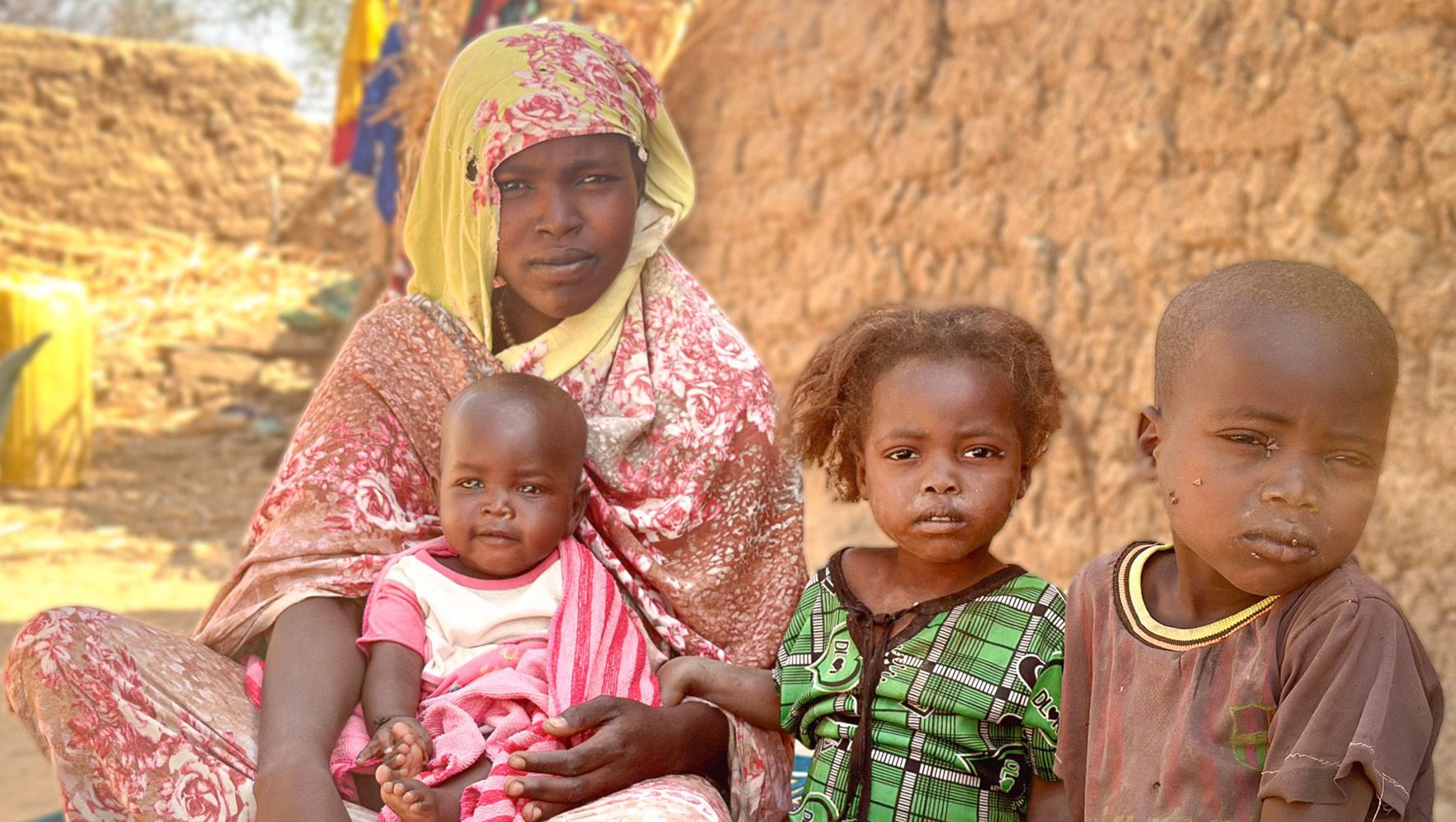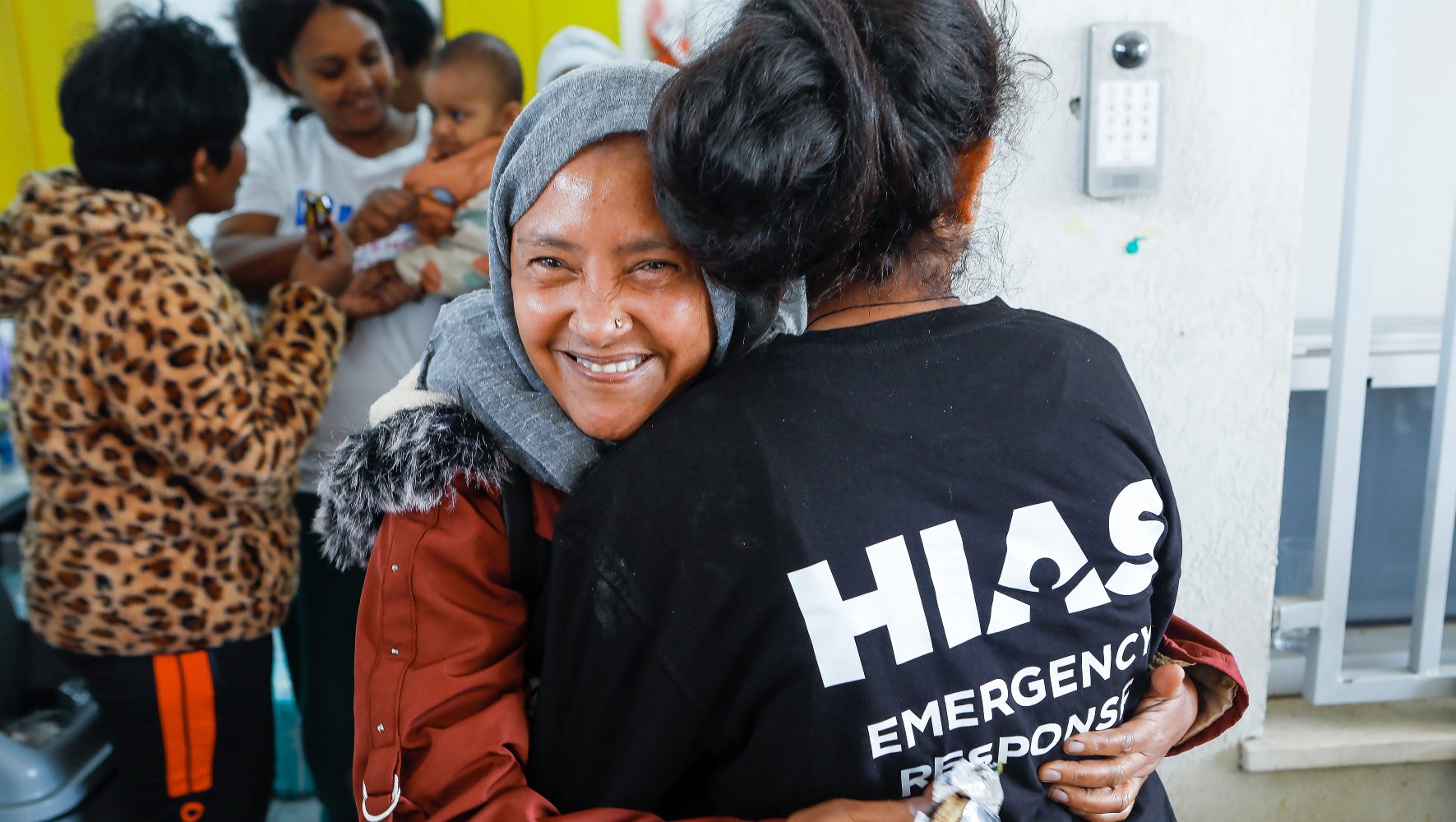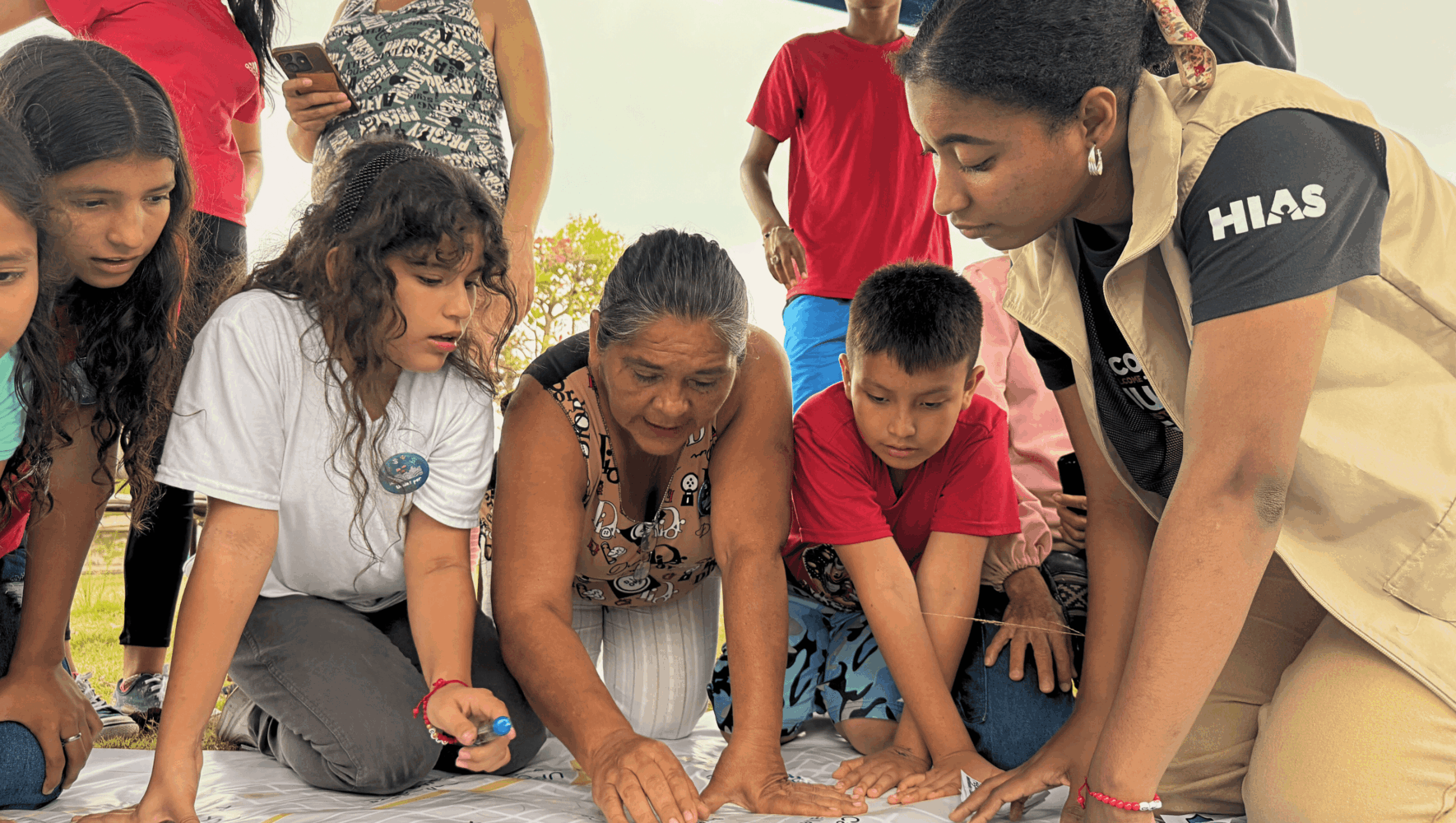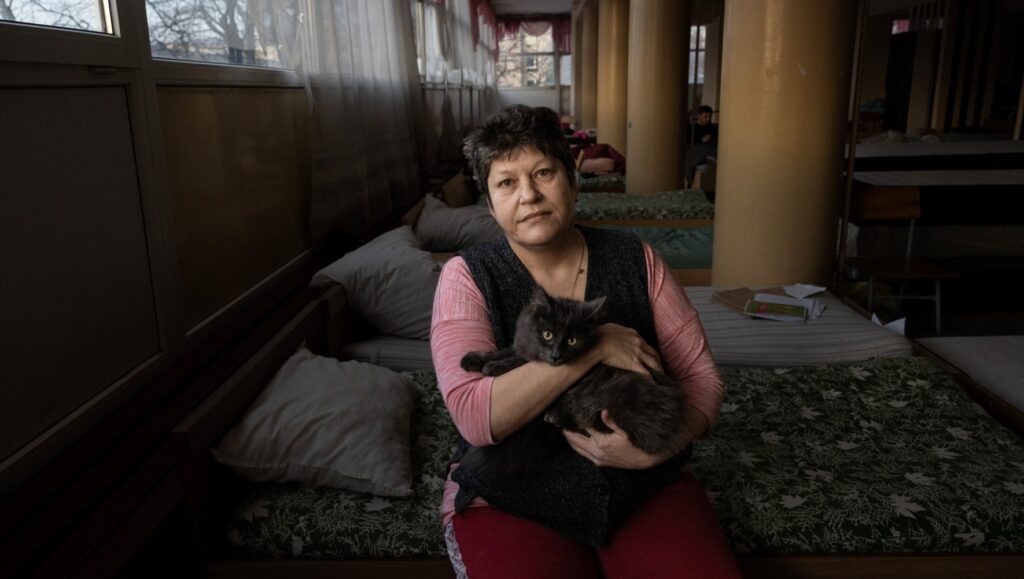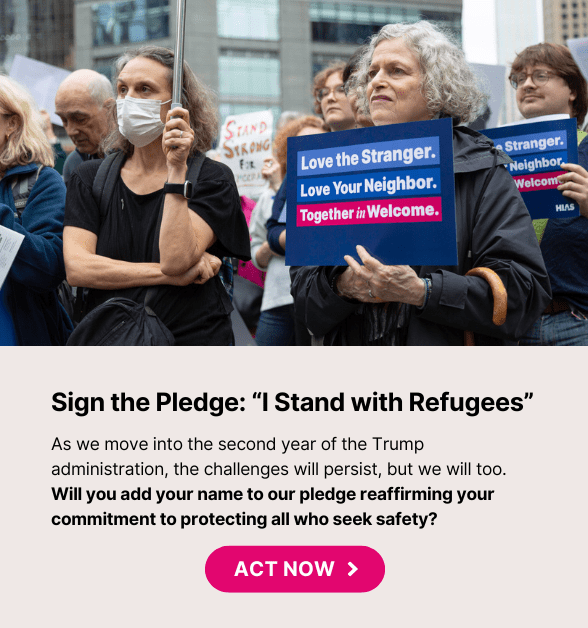2024 will be remembered as an extraordinarily challenging year for refugees, asylum seekers, and displaced people. In October, UNHCR reported that there were more than 122 million forcibly displaced people around the world, meaning that one in 67 people, or 1.5% of the world’s population, was forced to flee their home. The growth in displacement in 2024 continues a distressing trend — compared to a decade ago, the total number of refugees globally has more than tripled.
In response to these challenges, HIAS programs and services reached more than 1.4 million people in 2024. We assisted more than a quarter of a million displaced people with legal help and provided nearly 290,000 displaced people with mental health services. We not only responded to gender-based violence (GBV), but actively promoted GBV prevention in services that reached more than 307,000 people.
Here are some of the notable ways HIAS made an impact in 2024:
Sudan/Chad
Since the outbreak of civil conflict in Sudan in April 2023, 12.8 million Sudanese have been forcibly displaced, internally and abroad. Over 686,000 have fled to neighboring Chad, where HIAS has worked since 2005. HIAS field offices serve 13 refugee camps along the eastern border with Sudan and provide refugees and host communities with emergency services such as food, GBV awareness-raising activities, child protection activities, mental health counseling, and training on peaceful cohabitation and conflict prevention.
Ukraine
As the full-scale war in Ukraine nears its third anniversary, the human toll continues to grow. Nearly 4 million people have been internally displaced by the war, and 6.8 million refugees have fled to other countries. This year, HIAS continued to provide vital services to those displaced by the war, assisting 51,800 people in Ukraine and the surrounding countries of Romania, Poland, and Moldova.
Israel/Gaza
The attacks of October 7, 2023 continued to affect daily life throughout Israel in 2024, while war between Israel and Hizbollah displaced thousands of people on both sides of the country’s border with Lebanon. In 2024, the HIAS Emergency Response team assisted 260,588 people, providing life-saving support to those displaced in Israel and critical security information to asylum seekers and displaced families. Nearly 25,000 people were supported with emergency food and more than 92,000 people received mental health assistance.
Latin America and the Caribbean
In 2024, HIAS developed a multi-country approach to GBV prevention, mitigation, and response in Colombia, Ecuador, and Peru teaching local leaders how to create safe spaces and community-based support networks: Between June and November, HIAS trained 209 leaders in Colombia and Ecuador and created six Community Protection Committees in Peru. HIAS staff in Colombia and Panama have provided thousands of people with emergency assistance in the Darién Gap, and in August launched an initiative to reach 39,000 people and provide them with essential services in GBV, mental health, and sexual and reproductive health care
United States
The year brought a historic milestone: resettlement of over 100,000 refugees for the first time since 1995. HIAS was a vital part of this effort, resettling 8,279 people across the country through our network of 30 resettlement partners. HIAS is also a leader in the fast-growing field of private sponsorship; through Welcome Corps sponsors HIAS resettled 119 refugees, and through a special virtual reception program helped about 500 refugees join their family or friends in the U.S. and receive remote case management.
South Africa
HIAS officially opened a new office in South Africa to help refugees and to combat and prevent Afrophobia and xenophobia. HIAS’ work focuses on legal protection and advocacy, and also addresses mental health support and assistance for women and children and the LGBTQ+ refugee community who are at risk of gender-based violence. While refugees and asylum seekers in South Africa have access to similar legal rights as South African citizens, many struggle to exercise their rights in practice.
* Numbers of people reached reflect the 2024 U.S. federal fiscal year (Oct. 1, 2023 – Sept. 30, 2024). Global refugee numbers are sourced from UNHCR, the UN Refugee Agency.
